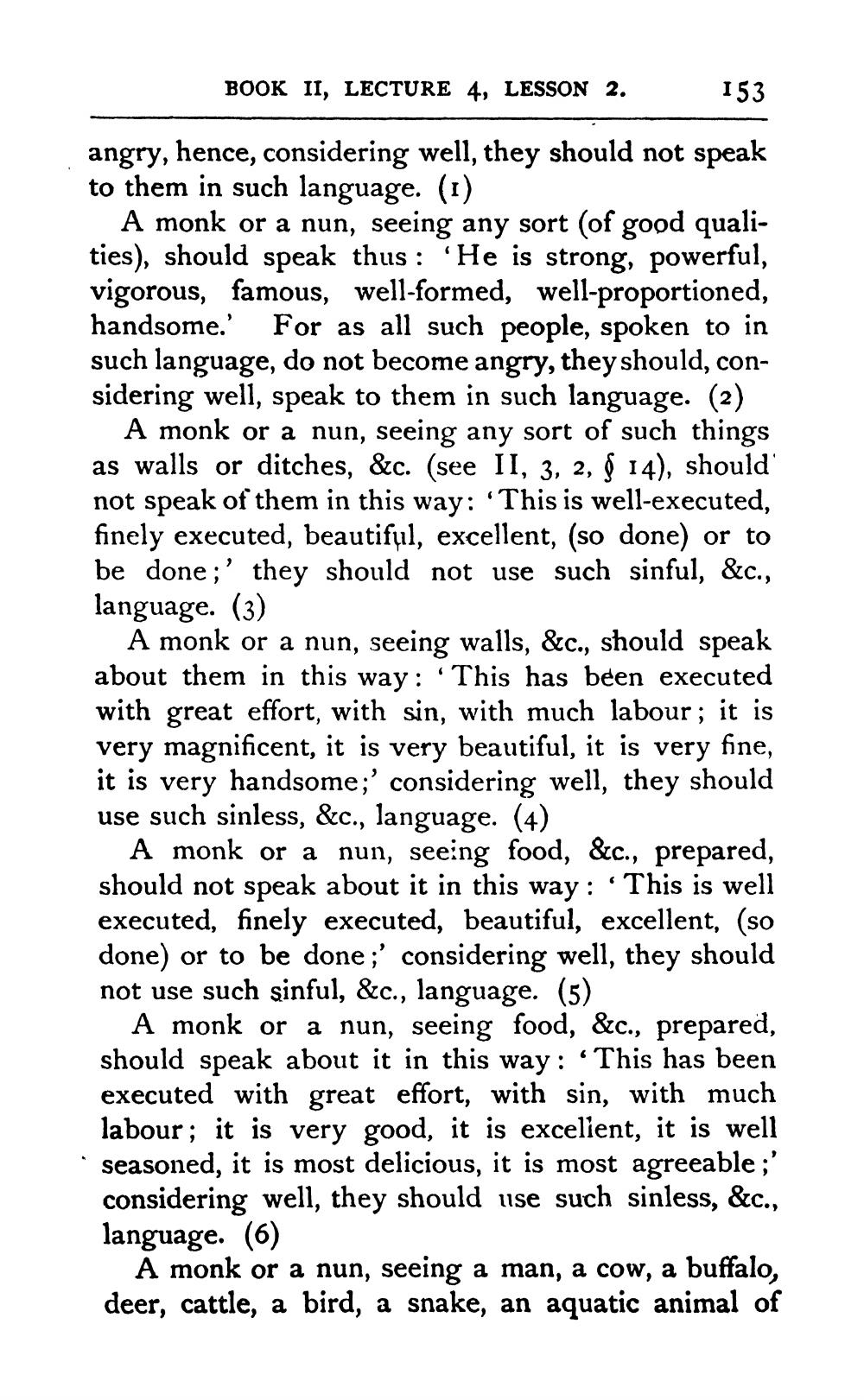________________
153
angry, hence, considering well, they should not speak to them in such language. (1)
A monk or a nun, seeing any sort (of good qualities), should speak thus: 'He is strong, powerful, vigorous, famous, well-formed, well-proportioned, handsome.' For as all such people, spoken to in such language, do not become angry, they should, considering well, speak to them in such language. (2)
A monk or a nun, seeing any sort of such things as walls or ditches, &c. (see II, 3, 2, § 14), should not speak of them in this way: 'This is well-executed, finely executed, beautiful, excellent, (so done) or to be done;' they should not use such sinful, &c., language. (3)
A monk or a nun, seeing walls, &c., should speak about them in this way: This has been executed with great effort, with sin, with much labour; it is very magnificent, it is very beautiful, it is very fine, it is very handsome;' considering well, they should use such sinless, &c., language. (4)
A monk or a nun, seeing food, &c., prepared, should not speak about it in this way: 'This is well executed, finely executed, beautiful, excellent, (so done) or to be done;' considering well, they should not use such sinful, &c., language. (5)
A monk or a nun, seeing food, &c., prepared, should speak about it in this way: This has been executed with great effort, with sin, with much labour; it is very good, it is excellent, it is well seasoned, it is most delicious, it is most agreeable ;' considering well, they should use such sinless, &c., language. (6)
A monk or a nun, seeing a man, a cow, a buffalo, deer, cattle, a bird, a snake, an aquatic animal of
BOOK II, LECTURE 4, LESSON 2.
"




